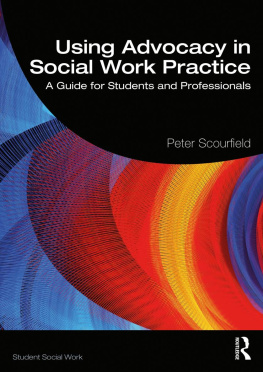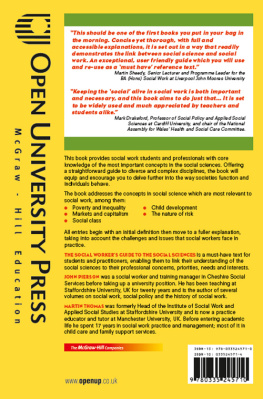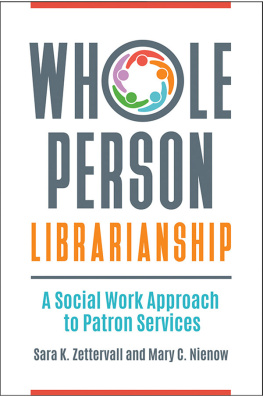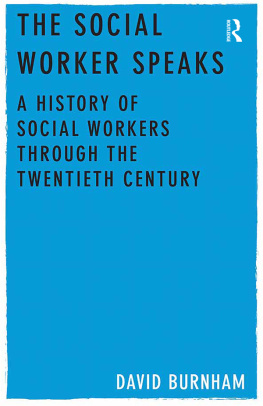Other books you may be interested in:
Children Forsaken: Child Abuse from Ancient to Modern Times
| Steven Walker | ISBN 9781913453817 |
Fostering for Adoption: Our Story and the Stories of Others
| Alice Hill | ISBN 9781914171239 |
Living a Good Life with Dementia: A Practitioners Guide
| Liz Leach and Jayna Patel | ISBN 9781914171567 |
Social Work and Covid-19: Lessons for Education and Practice
| Edited by Denise Turner | ISBN 9781913453619 |
The Anti-racist Social Worker: Stories of Activism by Social Care and Allied Health Professionals
| Edited by Tanya Moore and Glory Simango | ISBN 9781914171413 |
Our titles are available in a range of electronic formats. To order, or for details of our bulk discounts, please go to our website

First published in 2021 by Critical Publishing Ltd
All rights reserved. No part of this publication may be reproduced, stored in a retrieval system, or transmitted in any form or by any means, electronic, mechanical, photocopying, recording or otherwise, without prior permission in writing from the publisher.
Copyright 2021 Abbi Jackson
British Library Cataloguing in Publication Data
A CIP record for this book is available from the British Library
ISBN: 9781914171208
This book is also available in the following e-book formats:
EPUB ISBN: 9781914171215
Adobe e-book: 9781914171222
The right of Abbi Jackson to be identified as the Author of this work have been asserted by her in accordance with the Copyright, Design and Patents Act 1988.
Cover design by Out of House Ltd
Text design by Out of House Ltd
Project management by Newgen Publishing UK
Printed and bound in Great Britain by 4edge, Essex
Critical Publishing
3 Connaught Road
St Albans
AL3 5RX
Contents
With gratitude to social work friends, practice education colleagues and students past, present and future. Thank you for the learning.
Abbi Jackson has worked in Childrens Services for around 25 years. She has been a foster carer and has worked in secure care and childrens residential care. She has spent time as a social worker in a statutory childcare team, as an independent Form F assessor and as a supervising social worker. She has led large-scale practice audits in Childrens Services and more recently in adult protection. Currently, she is a senior planning officer for adult social work and integrated services in a local authority area and is an independent panel member for a private fostering company.
Abbi is also an active practice educator and lectures in critical social work practice. She has an interest in early intervention with young people who experience emerging mental health concerns. Never a dull moment, she is currently undertaking a piece of action research with young people receiving alternative therapies. She is a beekeeper in her spare time.
Authors note
Please note that the material in this book has been developed from the thoughts of the author as an individual and is not endorsed by any employer, past or present. The examples are fictitious.
Welcome! Its great to have you here. This book has been written to help guide you in applying theory to social work practice. The stories in the chapters ahead are of fictitious characters told from the viewpoint of the social worker who is trying to help them. The interventions are not perfect examples (if these even exist). However, they give an indication of some of the social workers thinking during practice; how they consider ethical dilemmas, how they weigh up options and how they work with other professionals. The stories provide insight into different areas of social work practice, while always regarding the person receiving support as the expert in their own life.
However, no one-dimensional account can offer a full understanding of the experience of the social worker in these stories. I want you to read attempting to imagine how this might look, sound and smell in practice. I want you to stop and reflect on what you would be feeling if you were in the role of the social worker: the frustrations and anxieties, butterflies in the stomach when you sense tension mounting, a tight throat when you want to say something but hold back or the sense of relief when you are able to retreat to your car after an intimidating encounter. Think alongside the storyteller about practice options in the moment, wonder if you are doing the right thing. This book is about reflecting in action (while it is happening) as well as on action (after the event). Consider the satisfaction that you have influenced improvements to someones well-being and opportunities or where the intervention could have been different.
You can use the book in any way that fits for you. The side boxes noting approaches and theory to inform or intervene are intended as pointers towards good places to start reading. They are not the definitive answer. Please critique the theories noted and consider how they apply in each case. Discuss your thoughts with others and reflect upon where you would apply different theories. Use the case studies to explore the wider issues and themes raised, and how they apply to your practice.
Think about the balance in social work between justice, care and control, and the stages of change that apply in the stories. Especially consider the value-based practice and micro-skills you would use to attempt to retain a positive working relationship with each individual person. Debate what is a skill, what are values and what is an approach.
Perhaps you could pair up with someone and have a go at trying to defend the decision making in the stories or present to your practice educator or peers what you would do differently. Explaining your decision-making rationale competently and clearly in day-to-day practice helps you empower the people you serve. Accountability is being able to justify to multiple audiences exactly why you made specific decisions. Think about what a professional from another discipline would make of your rationale and if they might hold a different point of view. Consider how you would justify your decision making to the people and families in the stories if they held a more hostile position or distorted perspective. Debate congruence where you (the worker) and the service user align with understanding and expectation.
Perhaps you could discuss in supervision the dilemmas raised and critique the evidence base available alongside your own practice contexts. Consider what you do not yet know in these cases. Use this as a foundation to developing your own reflexive practice.
Practice educators could extend these uses of the material in the chapters according to their students learning needs. Perhaps the background of the cases could be used in an action learning set in group supervision. Or further context could be added to the cases for discussion for example, how do we approach the shadowy figure of Harry, who may, or may not, pose a risk to baby Sophie in Case Study 5? Perhaps supervision could look at what the person we serve would say if they were in the room.










